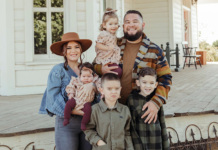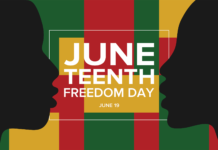By Priscilla Behnke

This July is the third season of “Stranger Things.”
The show is intriguing and not just for the Lovecraftian and Dungeons & Dragons-inspired, other-dimensional monsters terrorizing the residents of Hawkins. It also has resonating themes of friendship, sacrifice, fighting for a cause bigger than yourself and the true grit of parenting.
In season one, a group of young friends find themselves worried about their missing pal, Will, as does his single mother, Joyce. The show meticulously makes a point through flashbacks and small moments to show Joyce knows Will. She had taken the time to find and talk with him even when he would withdraw. She noticed when something was wrong, right down to the missing birthmark on a fake body. It was her persistence coupled with a strong support system that saves Will.
His friends are key players, but they don’t do it without adults. Chief Hopper rescues the young heroes and in the end it’s when the kids align with Hopper and Joyce that they are successful. If left to navigate the danger alone, they would have lost.
Our world doesn’t have Lovecraftian monsters, but there are real dangers lurking, ready to destroy our kids – addiction, loneliness, bullying, trafficking, lack of purpose. As parents we need to be vigilant, set boundaries and make decisions that are best for our kids, not decisions that are most convenient for us.
This theme is echoed in season two. Conflict arises when the kids separate from the adults and keep them in the dark about their new “pet.” Will tries to stand his ground against a creature alone. Joyce’s vigilance saves the day. The mother with few resources takes advantage of those she has. She won’t take no for answer, and when Will tries to shut her out, she looks at his video tapes, drawings, anything with clues.
Again, the kids find they need adults to fight the danger. Joyce again rescues Will as she tries to make the environment inhospitable for the monster. He cries to manipulate her so she will quit. She does what’s right for her son, not what is easy for them, and continues to make the hard choice, which saves her son. She’s aware of the realities of the danger her kids face, and she refuses to let them face them alone.
If our kids fall to what preys on them, we need to be ready for the long hard fight, and as a community we should be ready to stand with those parents. Above all we shouldn’t be leaving our kids to fight this world’s monsters alone.
Priscilla Benhke is program director for Maricopa CAASA and Be Awesome Youth Coalition.
This column appears in the July issue of InMaricopa.


![Who’s the Best Mom InMaricopa? Nominate now! Marlene Marshall, Christina Olivares, and Meghan Bremer. [Bryan Mordt]](https://www.inmaricopa.com/wp-content/uploads/2023/05/BCM_8465-218x150.jpg)



![Maricopa sheds tears amid Maui wildfires that killed dozens For Maricopa resident Janelle Gomez, the sorrow mirrors the loss of a family member. [Brian Petersheim]](https://www.inmaricopa.com/wp-content/uploads/2023/08/Gomez-218x150.jpg)
![Embracing Freedom: Celebrating the Fourth of July Councilmember Vincent Manfredi at Great American 4th 2021 [Victor Moreno]](https://www.inmaricopa.com/wp-content/uploads/2023/07/2021-Great-American-4th-e1688414543522-218x150.jpg)




![Alleged car thief released without charges Phoenix police stop a stolen vehicle on April 20, 2024. [Facebook]](https://www.inmaricopa.com/wp-content/uploads/2024/04/IMG_5040-218x150.jpg)




![City gave new manager big low-interest home loan City Manager Ben Bitter speaks during a Chamber of Commerce event at Global Water Resources on April 11, 2024. Bitter discussed the current state of economic development in Maricopa, as well as hinting at lowering property tax rates again. [Monica D. Spencer]](https://www.inmaricopa.com/wp-content/uploads/2024/04/spencer-041124-ben-bitter-chamber-property-taxes-web-100x70.jpg)